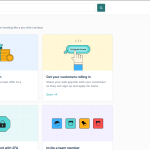Many financial institutions using Lendsqr’s lending platform frequently ask about Lendsqr savings license requirements for expanding their services to include savings accounts, investment products, and member contributions. Therefore, understanding the proper Lendsqr savings license requirements becomes crucial for compliance and successful implementation.
Learn more on how to get you lending license here here
Lendsqr platform savings and investment license capabilities
While Lendsqr specializes in digital lending solutions, the platform also fully supports licensed institutions in managing deposits, contributions, and investments. However, each financial activity requires specific regulatory authorization and operates under distinct legal frameworks.
Understanding lendsqr savings license requirements by product type
Bank deposits: Licensed banks hold customer funds that they must return on demand. Furthermore, the Nigerian Deposit Insurance Corporation (NDIC) provides insurance coverage up to ₦250,000 per depositor as of July 2023. Additionally, banks can accept deposits from any account holder.
Cooperative contributions: Cooperative society members pool these funds together. However, cooperatives legally restrict their services to accepting contributions exclusively from registered members, not the general public.
Investment products: Customers place funds with authorized financial institutions where returns aren’t guaranteed. Consequently, investors must understand potential losses and risks that come with their investment choices.
Required savings and investment license requirements for Lendsqr
To legally accept customer funds through the Lendsqr platform, institutions must hold appropriate licenses that meet Lendsqr savings license requirements. Specifically, the following institutions can offer these services:
- Commercial banks and microfinance banks (MFBs): These institutions hold licenses to accept NDIC-insured deposits
- Finance houses: Similarly, these entities receive authorization to offer investment products and services
- Registered cooperatives: Meanwhile, these organizations can collect contributions from verified members only
- Asset management companies: These firms hold licenses to manage customer investment portfolios
- Money lenders: In contrast, these institutions cannot legally accept deposits or investments from customers
Lendsqr license requirements: compliance and onboarding
Lendsqr’s Know Your Customer (KYC) process requires all financial institutions to provide valid, current licenses before accepting public funds. Moreover, this ensures regulatory compliance and protects both the platform and customers.
Ready to expand your financial services? Subsequently, contact Lendsqr to verify your licensing requirements and explore our comprehensive financial technology solutions.
Learn more about Lendsqr here


